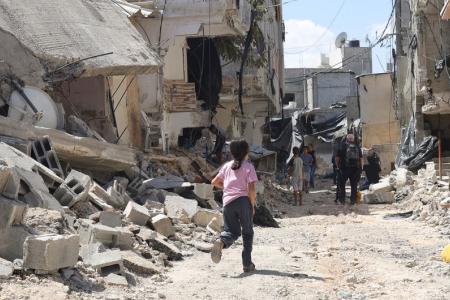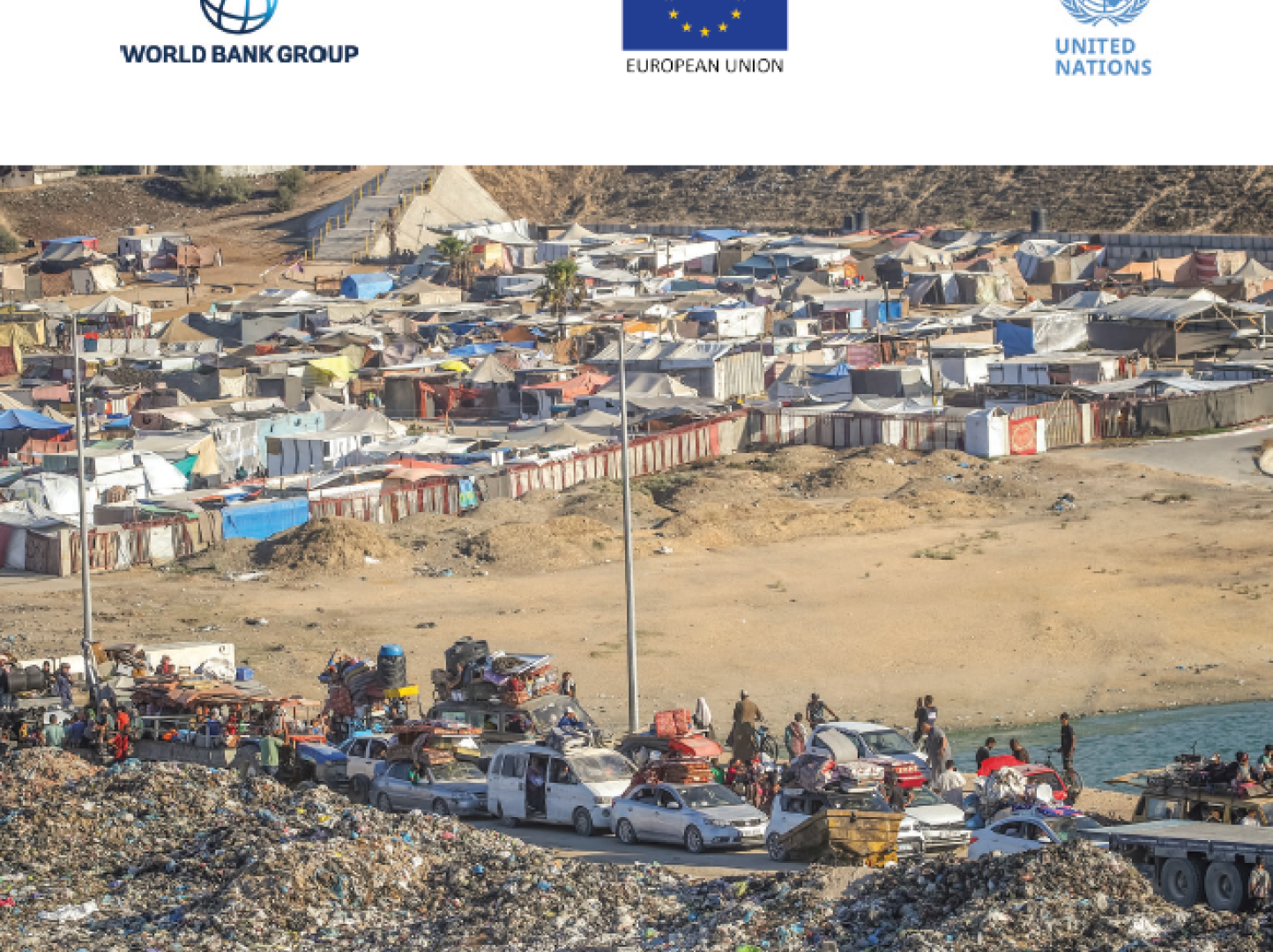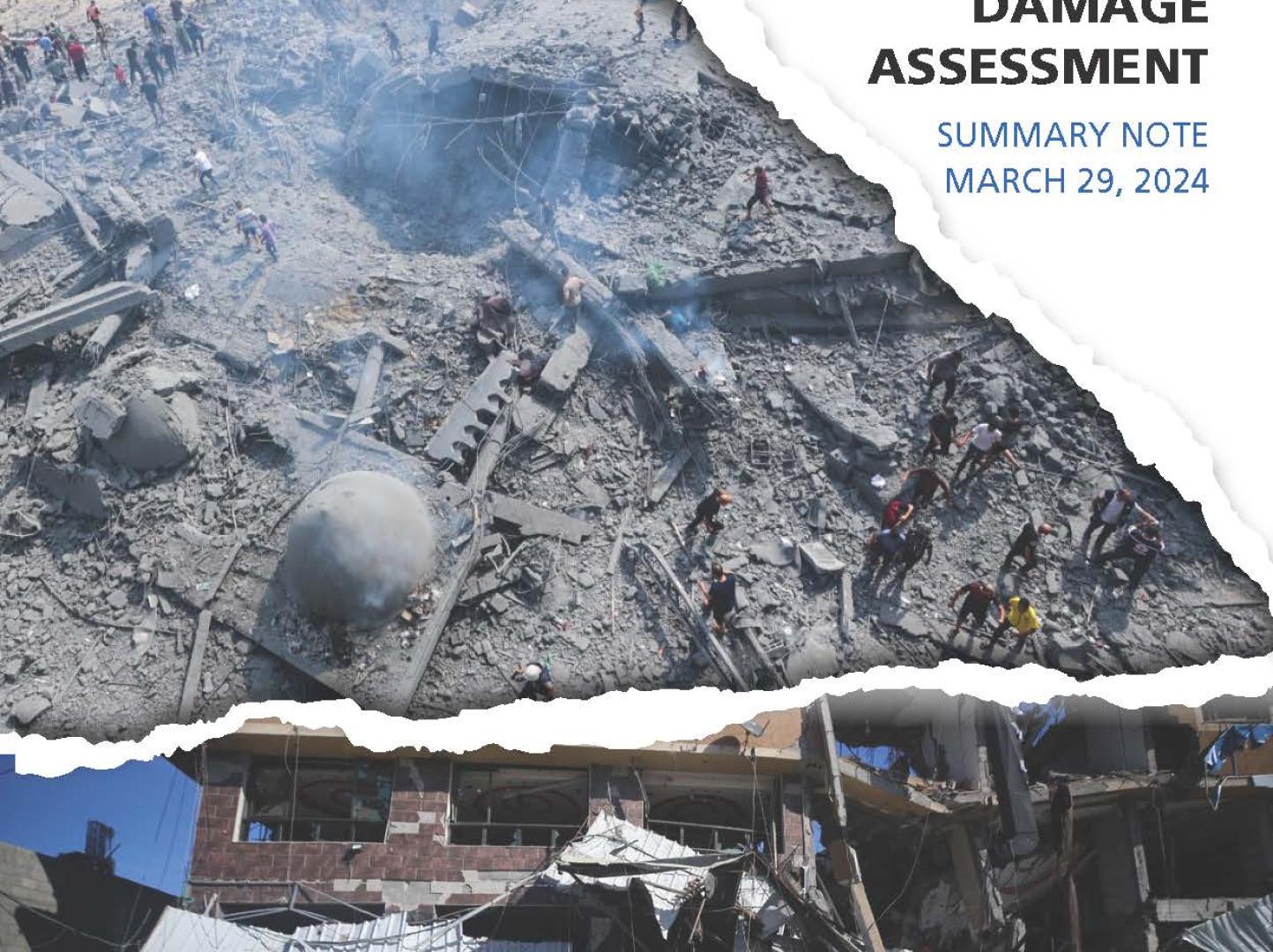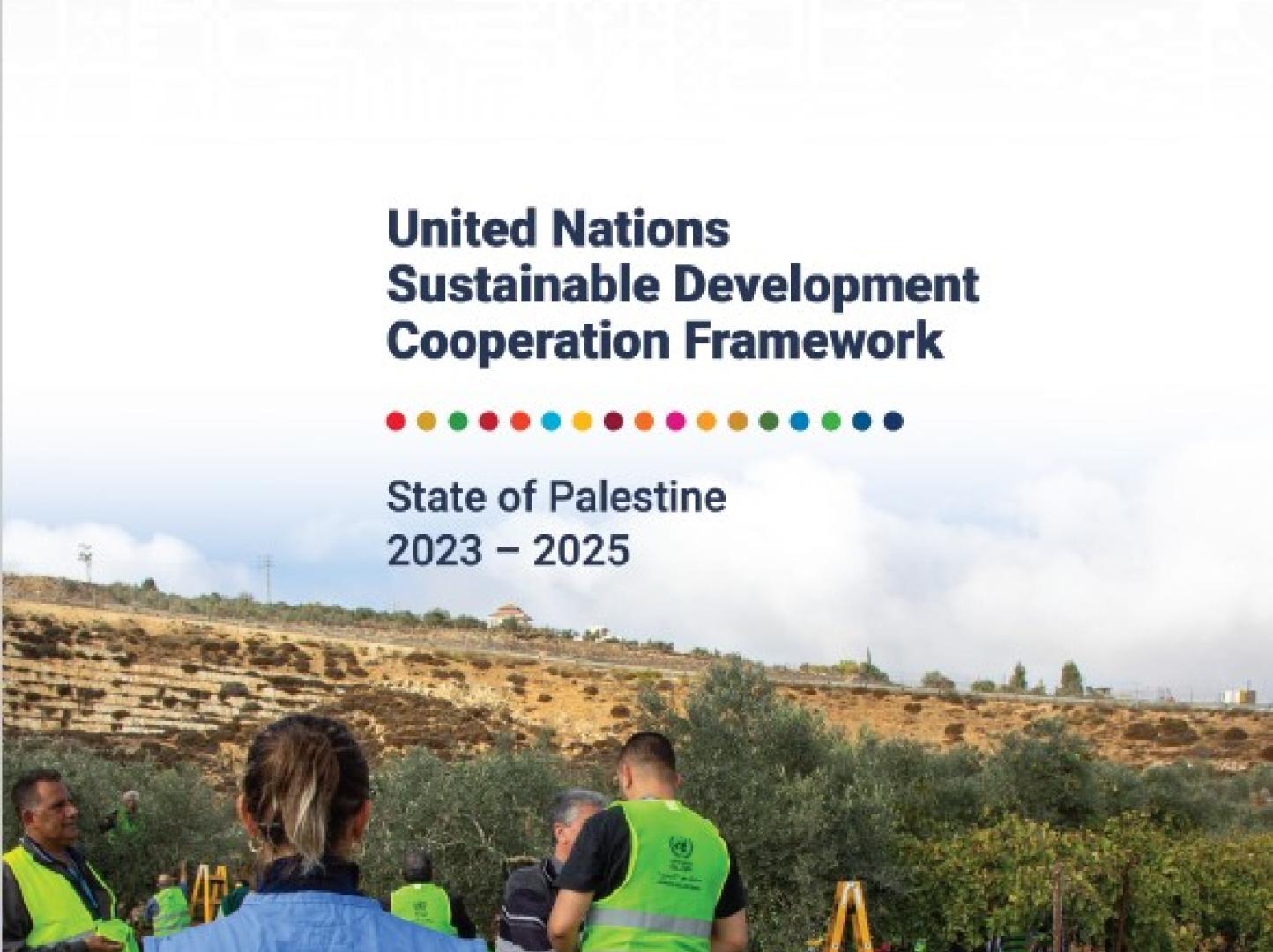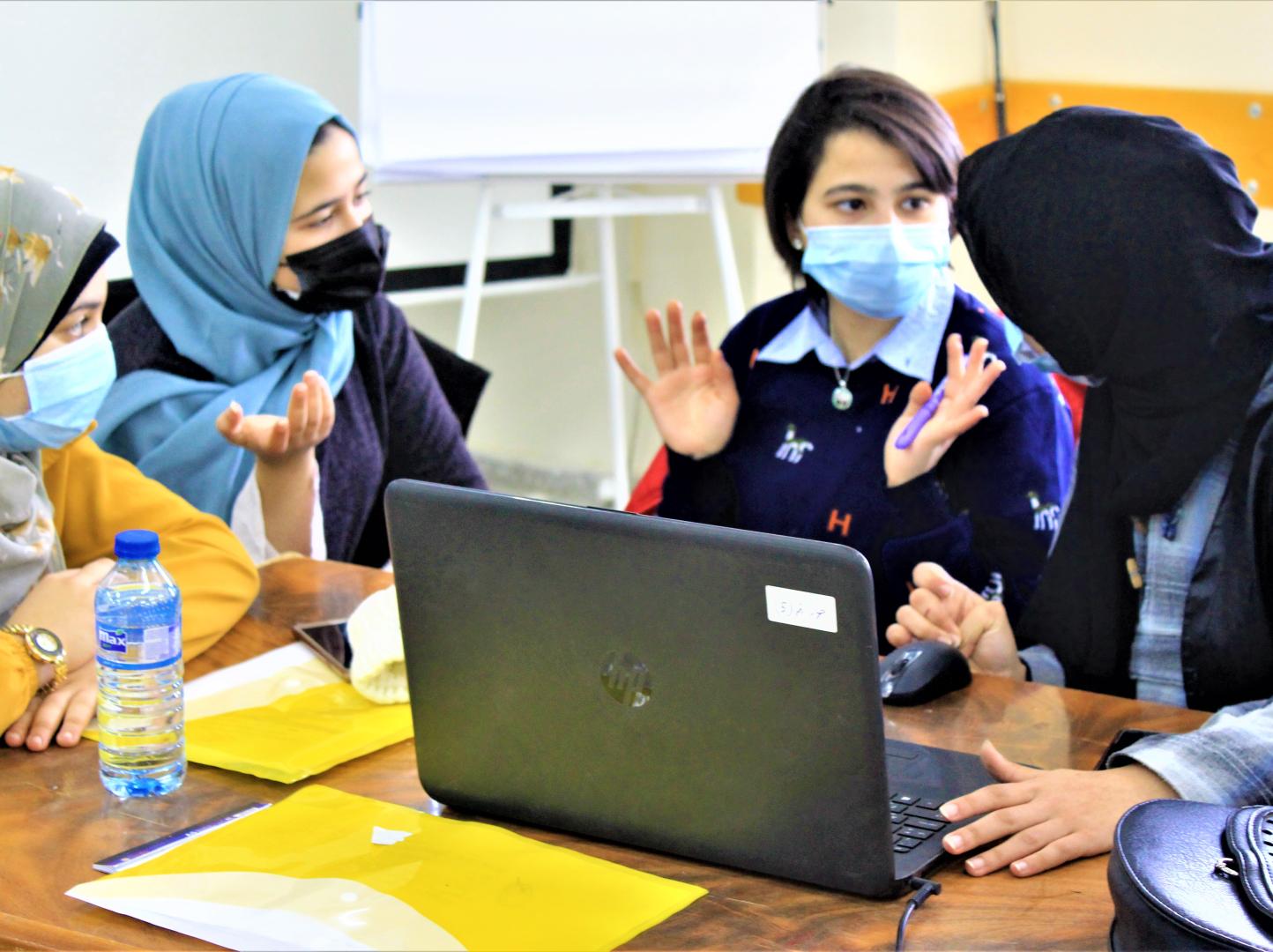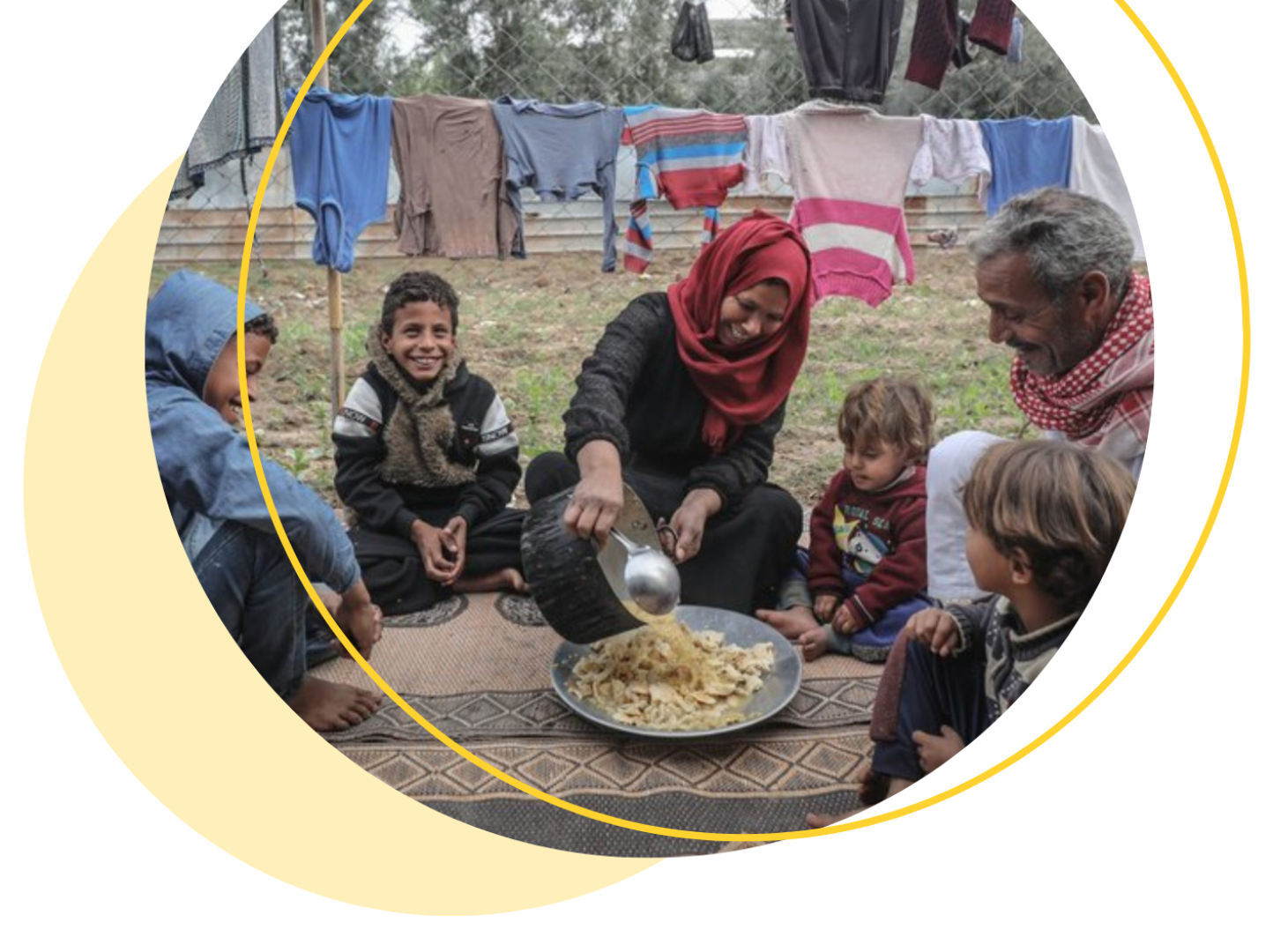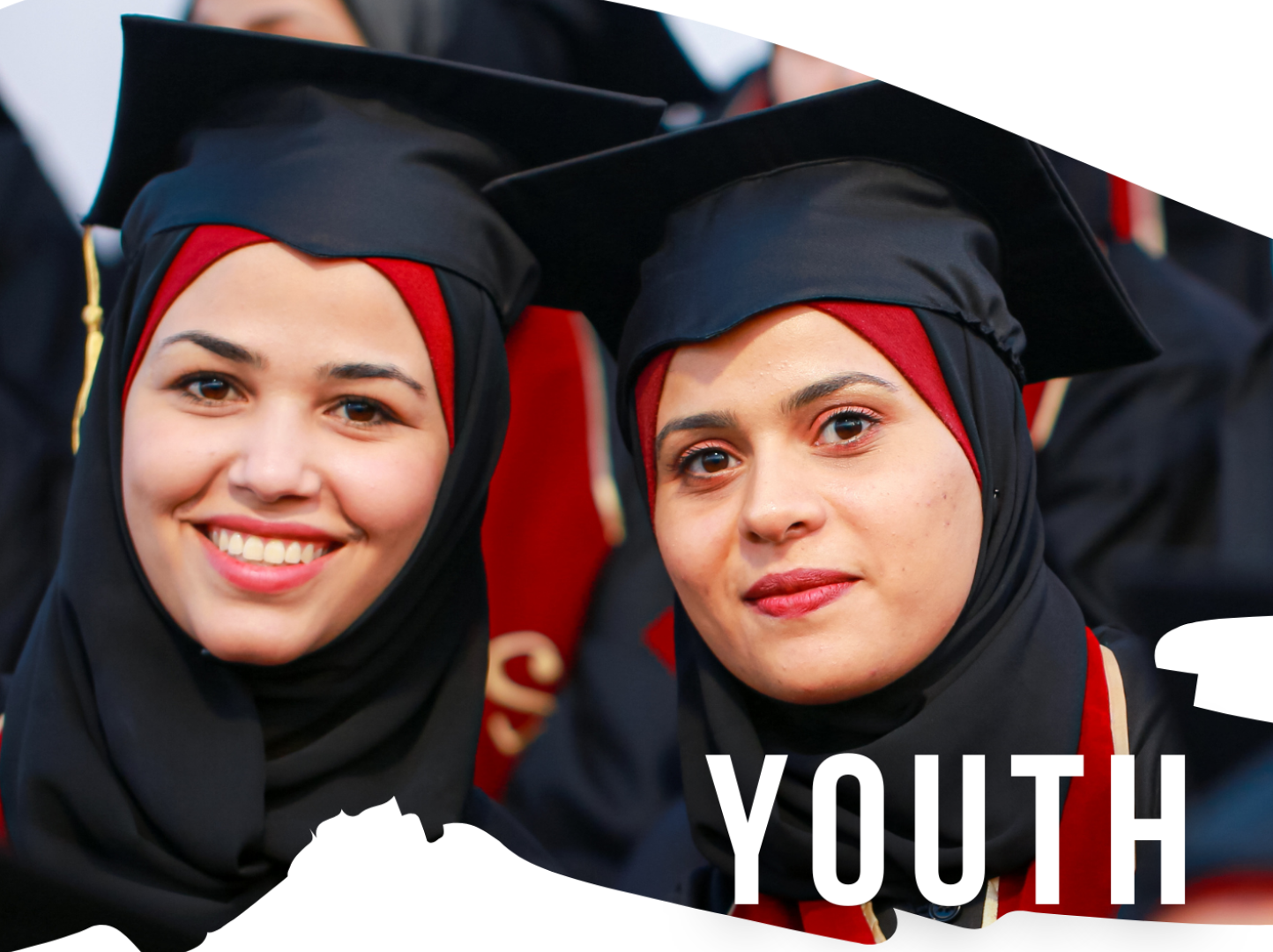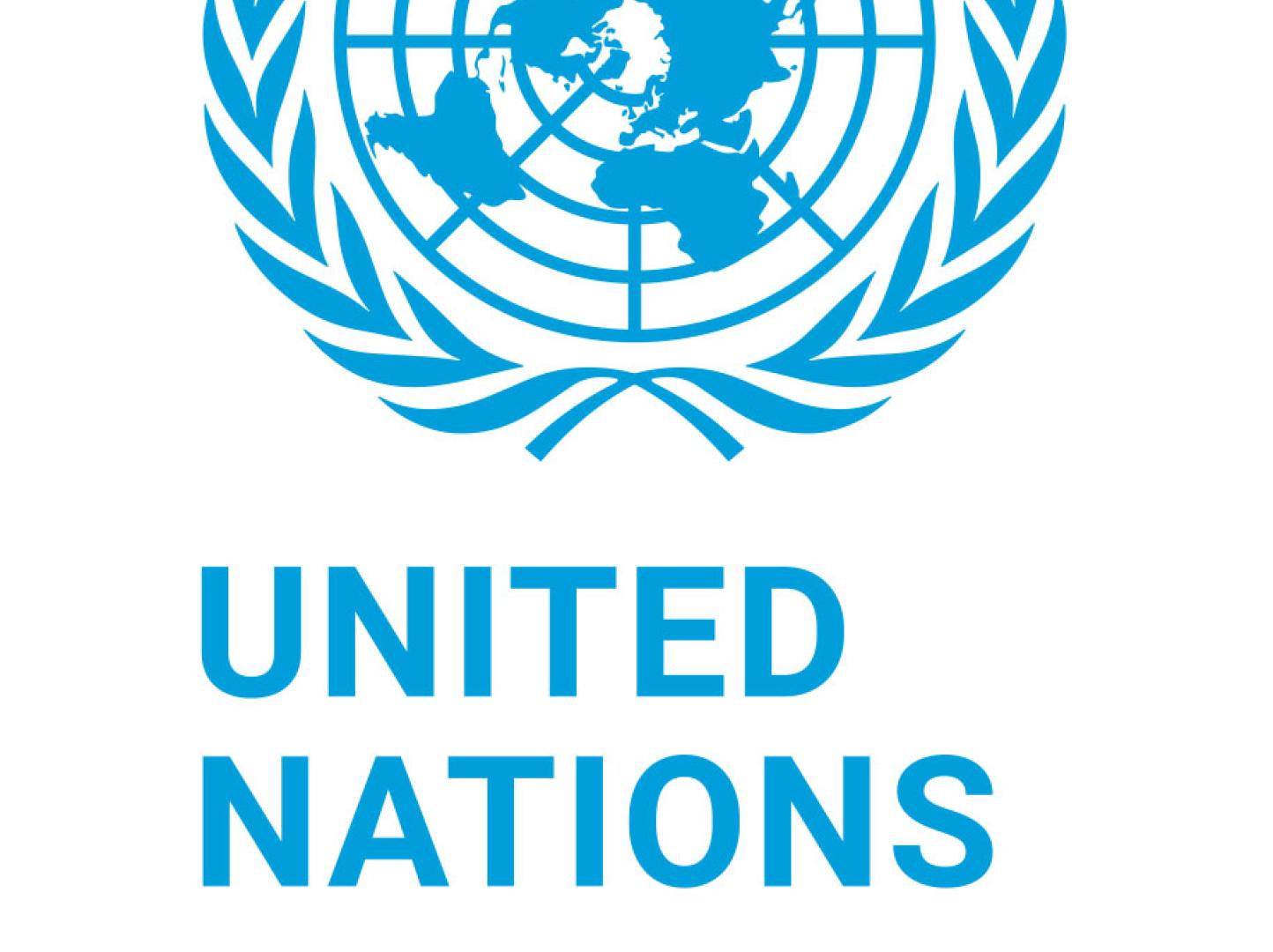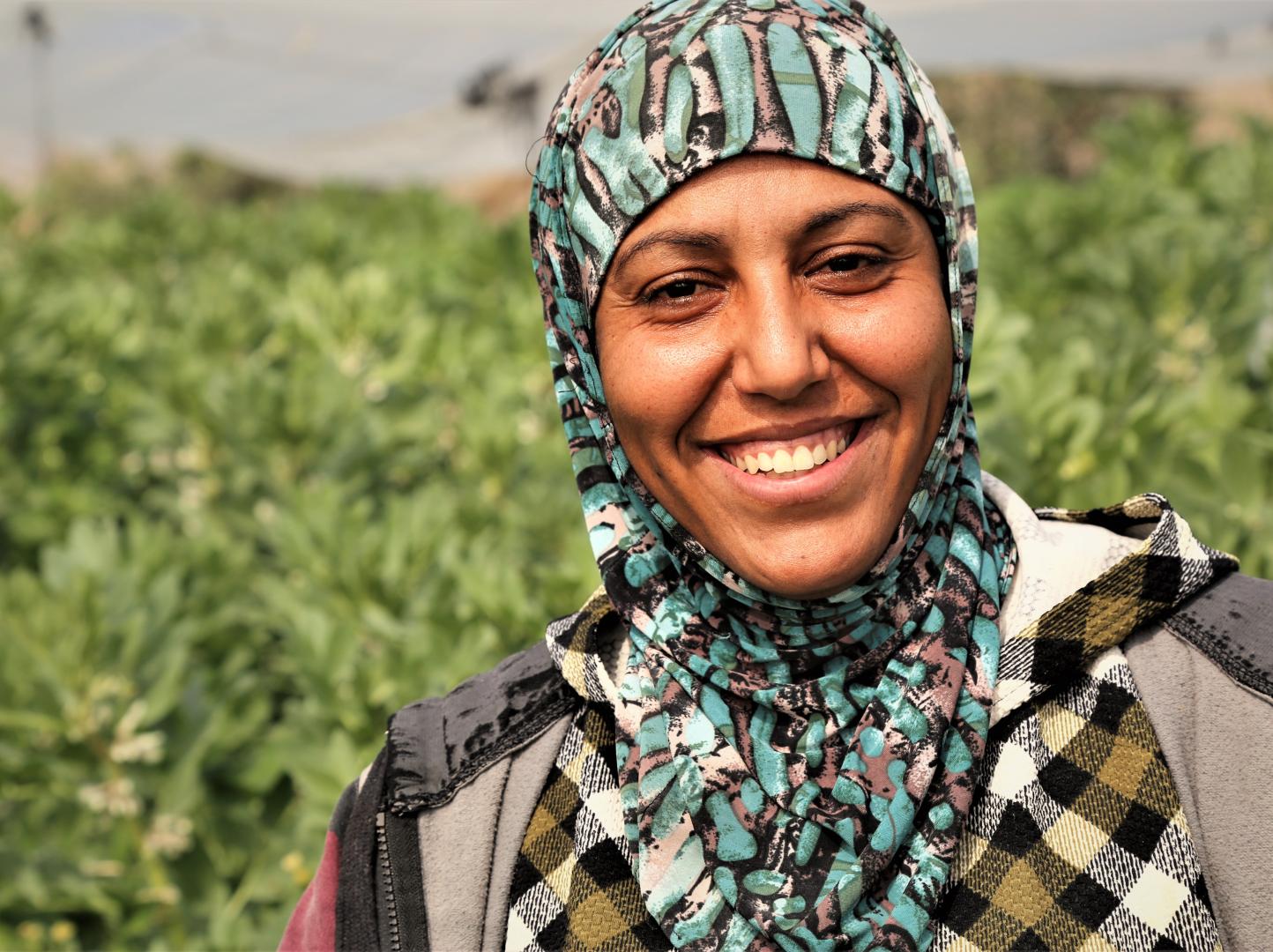Latest
Story
09 January 2026
Aid continues despite winter hardship in Gaza and West Bank, UN says
Learn more
Story
08 January 2026
West Bank: UN report warns of ‘systematic asphyxiation’ of Palestinian rights
Learn more
Story
19 December 2025
Gaza: Access to food improves but living conditions remain dire
Learn more
Latest
The Sustainable Development Goals in Palestine
The UN and its partners in Palestine are working towards achieving the Sustainable Development Goals: 17 interconnected Goals which address the major development challenges faced by people in Palestine and around the world. These are the goals the UN is working on in Palestine:
Story
09 January 2026
Aid continues despite winter hardship in Gaza and West Bank, UN says
Despite harsh winter conditions and continuing access constraints, the UN and partners are maintaining large-scale humanitarian operations in Gaza and the occupied West Bank, with a focus on shelter, water, health and education.That’s according to UN Spokesperson Stéphane Dujarric, briefing journalists in New York on Thursday.Citing the UN aid coordination office, OCHA, Mr. Dujarric said humanitarian teams are continuing to support the most vulnerable families in Gaza “despite impediments” and the cumulative impact of two years of conflict between Israeli forces and Hamas militants.“Over the past days, one of our partners distributed 7,000 dignity kits, more than 5,600 dignified family hygiene kits and 1.3 million bars of soap to some 200,000 people,” he said, stressing that assistance is reaching communities in both the north and south of the devastated Strip.Just trying to surviveEmergency shelter support remains a priority as temperatures drop.Humanitarian partners have reached more than 16,000 households across Gaza with tents, tarpaulins and other essential materials, including kits to weatherproof and reinforce makeshift shelters. “These are people trying to survive winter in extremely fragile conditions,” Mr. Dujarric noted.Winterisation assistance has also included the distribution of thousands of blankets, mattresses and bedding kits to improve sleeping conditions, alongside kitchen sets and clothing assistance for hundreds of households. At the same time, water trucking operations are continuing across the territory. “Thirty-six partners are distributing more than 21,500 cubic metres of fresh water every day to over 2,300 collection points,” he said.Education efforts, while constrained, are also progressing. More than 420 temporary learning spaces are now operating across Gaza, serving over 230,000 students with the support of some 5,500 teachers. Critical to scale upMr. Dujarric underscored that scaling up remains “a critical priority” but depends on the entry of essential supplies that are still being denied. Even so, renovation work in public schools continues, with new classrooms in Gaza City now allowing more than 1,800 children to return to learning.On health, Mr. Dujarric said the World Health Organization (WHO) recently facilitated the evacuation of 18 patients and 36 companions for medical treatment outside Gaza. “These medical evacuations remain absolutely essential,” he added.West Bank demolitions continueTurning to the West Bank, OCHA reports that severe winter weather has damaged or destroyed dozens of tents and makeshift shelters in Bedouin and herding communities. The UN is also warning of continued demolitions of Palestinian-owned structures by Israeli authorities for lack of permits, with 50 structures demolished over the past two weeks.“Our message is simple,” Mr. Dujarric said. “Across Gaza and the West Bank, the UN and its partners are doing everything possible to keep assistance going for people in need, despite extremely difficult conditions.”
1 of 5

Story
08 January 2026
West Bank: UN report warns of ‘systematic asphyxiation’ of Palestinian rights
A sweeping UN human rights report released concludes that in the occupied West Bank, Israel is violating international law prohibiting racial segregation and apartheid, warning that the discriminatory practices have accelerated dramatically since late 2022 amid growing violence, repression and impunity.The report by the UN human rights office, OHCHR, documents what it describes as a decades-long system of discrimination that has sharply intensified since at least December 2022.‘Systematic asphyxiation’ of rightsVolker Türk, the UN High Commissioner for Human Rights, said the findings reveal “a systematic asphyxiation of the rights of Palestinians in the West Bank.”“Whether accessing water, school, rushing to hospital, visiting family or friends, or harvesting olives – every aspect of life for Palestinians in the West Bank is controlled and curtailed by Israel’s discriminatory laws, policies and practices,” he said.“This is a particularly severe form of racial discrimination and segregation, that resembles the kind of apartheid system we have seen before.”Widespread oppressionAccording to the report Israeli authorities treat Israeli settlers and Palestinians residing in the West Bank under two distinct bodies of law and policies, resulting in unequal treatment on a range of critical issues, including movement and access to resources such as land and water.It concludes that there are reasonable grounds to believe the separation, segregation and subordination are intended to be permanent, to maintain oppression.“Acts committed with the intention to maintain such a policy amount to a violation of Article 3 of the International Convention on the Elimination of All Forms of Racial Discrimination, which prohibits racial segregation and apartheid,” it says.Further deterioration since 7 OctoberSince 7 October 2023 – when Hamas and other Palestinian armed groups from Gaza attacked communities in southern Israel, killing more than 1,200 and taking over 250 people hostage – the situation has deteriorated further, the report adds.It cites expanded use of unlawful force, arbitrary detention, torture, severe movement restrictions, repression of civil society and media, and settlement expansion. It says that this is compounded by the continuation and escalation of settler violence, in many cases with the acquiescence, support and participation of Israeli security forces.The report also documents trends of unlawful killings and other forms of State and setter violence and it contains numerous examples of lethal force that has been deliberately used when unwarranted, in a discriminatory manner against Palestinians, and with the apparent intention to kill.It highlights, among others, the killing of 10-year-old Saddam Hussein Rajab in January 2025 and the shooting of eight-month pregnant Sondos Shalabi in February 2025, noting that both victims were unarmed.Widespread impunityImpunity remains widespread, the report notes. Of more than 1,500 killings of Palestinians recorded between January 2017 and last September, Israeli authorities opened 112 investigations, resulting in just one conviction.Mr. Türk called on Israel to repeal laws and policies that “perpetuate systemic discrimination”, adding that illegal settlements must be dismantled, the occupation ended and Palestinians’ right to self-determination respected.
1 of 5
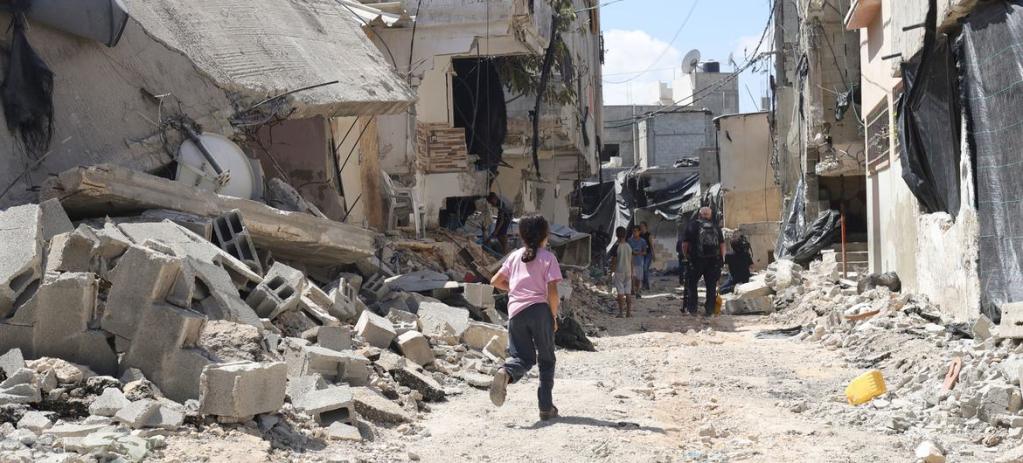
Story
19 December 2025
Gaza: Access to food improves but living conditions remain dire
Ten days ago, she gave birth and is now in recovery thanks to World Food Programme (WFP) facilities that are back up and running again, the agency’s representative for Palestine said.Speaking from Gaza to journalists in New York, Antoine Renard said that two months into the ceasefire, food access has significantly improved but Gazans continue to face severe hardship. The update comes a day after the UN and partners issued a statement calling on the international community to press Israel to lift impediments to humanitarian aid.Over one million fed WFP has managed to reach more than one million people with food boxes and wheat flour, Mr. Renard said. Together with UNICEF, the agency is providing over 300,000 people with preventive nutrition designed to prevent malnutrition and help those already malnourished to recover. Additionally, the agency is supporting temporary learning spaces with 190,000 kits which are being served with high energy biscuits and fortified protein bars.Mr. Renard confirmed that people are having two meals per day on average, compared to the one meal per day they were having in July. The Integrated Food Security Phase Classification (IPC) providing further information on the state of nutrition will be released on Friday.Access to food ‘not enough’ “Access to food itself is not enough,” he said. “The living conditions continue to be very dire in the Gaza Strip.”The rain and humidity of the winter period are creating terrible circumstances for the vulnerable. Mr. Renard brought up the example of a mother of five who was living in a tent, soaked. “That woman was actually saved by the fact that she was not in water because they managed to lift up the mattress,” he said.Meanwhile, most people are using trash and wood to cook their food.Overcoming impediments In order to provide food, WFP needs to go further into areas where the Israeli Defense Forces (IDF) are on the ground, like Jabalia and Beit Lahia in the north. The agency managed to open a distribution point in Beit Lahia last week. At the regular UN media briefing, Deputy Spokesperson Farhan Haq said that Wednesday’s statement gave warning that Israel’s new policies – including a new registration system for international NGOs that relies on “vague and politicized criteria – are undermining relief efforts and risk the collapse of the humanitarian response.”
1 of 5

Story
18 December 2025
Aid agencies warn Gaza response at breaking point as Israel urged to lift new restrictions
Humanitarian agencies working in the Occupied Palestinian Territory (OPT) have warned that life-saving aid operations risk collapse unless Israel immediately lifts new barriers that are blocking access and forcing international charities to shut down. In a sharply worded statement issued on Tuesday, the Humanitarian Country Team – which brings together senior UN officials and more than 200 local and international aid groups – called on the international community to press Israeli authorities to reverse measures that are choking humanitarian work, particularly in the Gaza Strip.At the centre of concern is a new registration system for international non-governmental organisations, introduced earlier this year. Flawed Israeli systemAid groups say the process is vague, politicised and impossible to meet without breaching humanitarian principles. Under the current rules, dozens of organisations face deregistration by the end of December, followed by the forced closure of their operations within weeks.“These organisations are not optional extras,” the statement said. “If they are pushed out, the humanitarian response will not survive.”International NGOs, working alongside UN agencies and Palestinian partners, deliver around one billion dollars’ worth of assistance each year across the territory. Yet millions of dollars’ worth of food, medicines, hygiene supplies and shelter materials are now stuck outside Gaza, unable to reach families in need.The warning comes as winter deepens and amid fears that further restrictions could destabilise a fragile ceasefire. Impossible lossAid agencies stressed that the impact of losing international NGOs could not be absorbed by the UN or local groups, especially after Israeli limits on Palestine refugee relief agency, UNRWA, have already stretched the response to breaking point.According to the Humanitarian Country Team, international NGOs support or run much of Gaza’s basic infrastructure for survival. They underpin field hospitals and primary health clinics, provide clean water and sanitation, distribute emergency shelter, and treat children suffering from severe malnutrition. Health facilities will closeIf they are forced to leave, one in three health facilities in Gaza would close almost immediately, cutting off care for tens of thousands of patients.Aid leaders said they had repeatedly raised these concerns with Israeli authorities and sought workable solutions to keep operations running. “There has been no adjustment,” the statement said, warning that the dismantling of NGO operations now appears imminent.Humanitarian access, the agencies insisted, is a legal obligation, not a political choice. “Lifesaving assistance must be allowed to reach Palestinians without further delay,” the statement concluded, urging Israel to allow rapid and unimpeded aid deliveries and to ensure that humanitarian organisations can operate independently and safely.Without swift action, the team warned, the consequences for civilians in Gaza would be catastrophic.
1 of 5
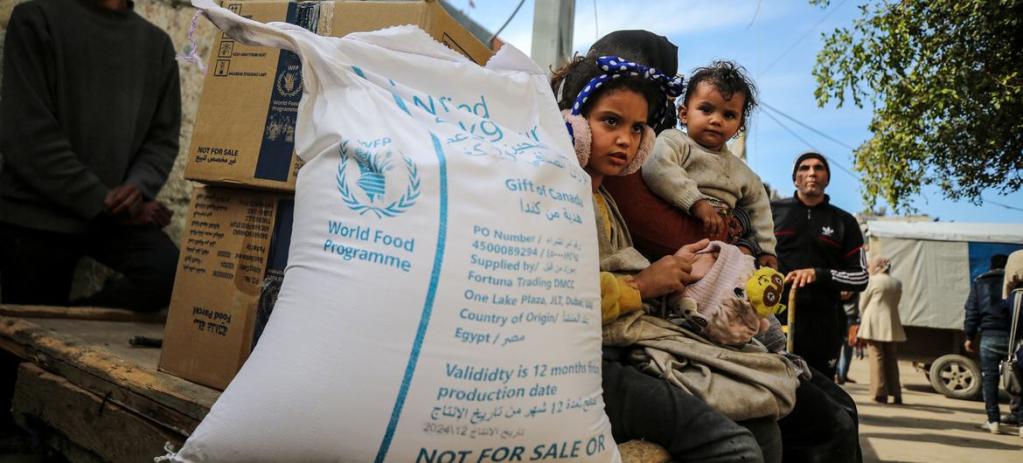
Story
17 December 2025
Gaza ceasefire still fragile as cold turns deadly, Security Council hears
A senior UN official working to promote greater peace in the region told the Security Council on Tuesday. Ramiz Alakbarov, Deputy Special Coordinator for the Middle East Peace Process, provided the update during his quarterly briefing on Council resolution 2334 (2016) which calls for Israel to cease settlement activity in the Occupied Palestinian Territory.He said the UN is doing its part to support the ceasefire.Key to recoveryThe truce came into effect in October and is based on a plan put forward by United States President Donald Trump, with mediation by the country alongside Egypt, Qatar and Türkiye.Speaking from Jerusalem, Mr. Alakbarov urged Israel and Hamas to fully implement the ceasefire, exercise maximum restraint, and adhere to international law, including relevant UN resolutions. “The ceasefire must be consolidated to enable recovery and reconstruction in Gaza,” he said.Cold kills newbornMeanwhile, winterization efforts are underway, and the UN is distributing tents, blankets and other essential supplies to the population. Still conditions remain dire, and the risk of hypothermia is increasing.“Tragically, the first hypothermia-related death of a two-week-old newborn boy from Khan Younis was confirmed earlier today,” he said.He stressed that “preserving and expanding operational space for the UN and its humanitarian partners, including through the renewal of NGO registration, is critical.”Clean water shortageMr. Alakbarov expressed deep concern over the humanitarian situation in the enclave.“While hunger has improved due to increased aid and commercial foodstuffs, key protein sources remain out of reach for most of the population, alongside severe shortages of clean water, medical care, and shelter,” he said.As humanitarian access remains restricted, with aid convoys facing logistical and security obstacles, he called on all parties to allow the full, unimpeded entry of humanitarian assistance.Heavy rains and flooding continueHeavy rains are compounding the already dire conditions families in Gaza are facing, UN Deputy Spokesperson Farhan Haq said, briefing journalists on Tuesday.“Our partners report that the storm continued overnight and into today, causing severe flooding of more than 40 designated emergency shelters – mostly in Khan Younis and Gaza City,” he said.Latest estimates indicated that some 700 tents were damaged or otherwise impacted by the flooding and thousands of people are affected.Teams helping to manage displacement sites are clearing blocked drains and pumping floodwater away from shelter yards. Commitment to deliverDespite the ongoing challenges, the UN and partners have been working to address needs across the Gaza Strip. On Monday, they coordinated nine humanitarian shipments with the Israeli authorities. Four were facilitated and three were impeded but eventually completed their journeys.“These missions allowed us to collect critical supplies from the Kerem Shalom and Zikim crossings – including food, fuel, blankets, tents, and winter clothing,” said Mr. Haq. The final two missions were impeded and only one was able to be partially accomplished. Rapid response systemMr. Haq explained that humanitarians continue to provide support to affected families through a system that was set up for a rapid, joint response to flooding alerts.It brings together UN agencies and NGOs to distribute tents, tarps, warm clothes, blankets and dignity kits. Last Saturday, partners provided some 7.5 kilos of high-energy biscuits per household to more than 1,000 families in various areas who were affected by the latest rainstorm. Additionally, distribution of veterinary kits resumed on Sunday after the bad weather forced a temporary halt.Distributions initially began on 9 December, and 400 herders have received kits and animal fodder since then.
1 of 5

Story
16 December 2025
Aid deprioritised as commercial goods flow into Gaza, UN warns
The UN’s aid coordination office (OCHA) warned on Monday, as winter storms continue to worsen already dire living conditions for displaced families.Despite sustained efforts by the UN and its partners, needs are rising faster than aid can be delivered, according to Olga Cherevko, an OCHA spokesperson in Gaza.“We continue to provide a response, but the needs outpace the speed with which we can respond,” she said, pointing to the limited volume of supplies entering the Strip and a growing list of items which continue to be blocked by Israeli authorities, including heavy machinery, equipment and spare parts needed to repair damaged infrastructure.With repeated storms flooding large areas in recent weeks, humanitarian agencies have prioritised emergency winterisation. An estimated 1.3 million people are currently in need of shelter assistance.“When the storms came, many people lost everything – it washed away everything that they had,” Ms. Cherevko said.Tents, tarps and beddingOver the past few days, aid teams have distributed around 3,800 tents, more than 4,500 tarpaulins and thousands of bedding items, assisting some 4,800 families.The response has included plastic sheeting, cooking sets and short-term food assistance to help families survive the immediate aftermath of flooding.Some of the most flood-prone locations have been identified by local authorities as unsafe, prompting several hundred families to relocate voluntarily. The UN and its partners have supported these moves by preparing and levelling sites and installing tents to ensure minimum conditions for safety and dignity.Heightened risk of hypothermiaWinter conditions continue to pose serious health risks, particularly for infants. “The risks of hypothermia are heightened, and babies are in very high danger,” Ms. Cherevko warned.UN partners are also raising awareness among caregivers, including guidance on body-to-body contact to help keep young children warm.Beyond shelter, humanitarian operations include food assistance, nutrition screening, health service points and the gradual reopening of learning facilities. In recent days, 13 additional temporary learning spaces have reopened, providing access to education for about 5,000 children.However, major constraints persist. Inside Gaza, the number of routes available for transporting aid remains limited, as do the crossings through which supplies can enter.Crossing delays“There are many instances in which humanitarian cargo is deprioritised and prioritisation is given to the commercial sector,” Ms. Cherevko said, noting that this causes delays that directly affect the speed of aid delivery.Additional challenges include inconsistent opening and loading times at crossings, restrictions on critical items and registration requirements that prevent non-governmental organisations from bringing supplies into Gaza.“All of these impediments must be lifted,” she stressed. “We have the capacity to respond, but we are constrained at a time when people’s needs are increasing faster than we can meet them.”
1 of 5

Story
10 December 2025
Gaza’s babies ‘scarred by war before first breath’ by malnutrition
Mothers who’ve been left starving in Gaza are now giving birth to underweight or premature babies who die in intensive care units or struggle to survive as they endure acute malnutrition, the UN Children’s Fund (UNICEF) warned.Speaking from the shattered enclave, UNICEF Communication Manager Tess Ingram said that at least 165 children are reported to have died “painful, preventable deaths” related to malnutrition during the war between Hamas fighters and Israel.A lesser-known scourge is acute hunger among pregnant and breastfeeding women and “the devastating domino effect” of this lack of a healthy diet on thousands of newborns.“In Gaza’s hospitals I have met several newborns who weighed less than one kilogramme, their tiny chests heaving with the effort of staying alive,” Ms. Ingram said.Born into dangerSpeaking to journalists in Geneva via video link, she explained that low birthweight infants are about 20 times more likely to die than infants of normal weight.The UNICEF spokesperson pointed out that before the war in 2022, an average of 250 babies per month, or about five per cent, were born weighing less than 2.5 kilograms at birth according to the Gaza Ministry of Health.In the first half of 2025, even with fewer births, that proportion rose to 10 per cent of all births, or about 300 babies per month, surging to 460 per month in the three months before the ceasefire.That amounts to 15 a day – almost double the pre-war average.“Low birthweight is generally caused by poor maternal nutrition, increased maternal stress and limited antenatal care,” Ms. Ingram explained.“In Gaza, we witness all three, and the response to them is not moving fast enough, nor at the scale required.”Reality of warThe UNICEF spokesperson added that in October alone, 8,300 pregnant and breastfeeding women were admitted for treatment for acute malnutrition, “in a place where there was no discernible malnutrition among this group before October 2023”.“This pattern is a grave warning and it will likely result in low birthweight babies being born in the Gaza Strip for months to come,” she said, adding, “This is not over.”The UN has responded to this dire situation by replacing incubators, ventilators and other life-saving equipment destroyed in the conflict.UNICEF has also provided supplements to tens of thousands of pregnant and breastfeeding women to prevent malnutrition, screening young children for acute malnutrition and enrolling them in treatment.But to improve the response, more aid urgently needs to enter the Gaza Strip.The UN Office for the Coordination of Humanitarian Affairs (OCHA) said on Monday that “persistent impediments” to reach the most vulnerable with aid include insecurity, customs clearance challenges, delays and denials of cargo at the crossings. Aid teams also highlight that limited routes are provided for transporting humanitarian supplies within the Strip.Rafah callOpening the Rafah crossing in southern Gaza could help to increase the flow of humanitarian trucks and bring down the numbers of children with malnutrition, UNICEF’s Ms. Ingram explained.“We really need to see all types of aid come in, particularly nutritious food through commercial routes as well,” she added, stressing that local markets need to be restocked with more commercial goods so that prices can drop and items such as fruit and vegetables, meat and dairy, can become affordable for families.The UNICEF spokesperson insisted that the two-month-old ceasefire “should offer families safety, not more loss”, recalling that more than 70 children have been killed since it began on 10 October.“Generations of families, including those being born now into this ceasefire, have been forever altered by what was inflicted upon them,” Ms. Ingram said, stressing that she sees and hears the generational impacts of the conflict on mothers and infants “almost every day in hospitals, in nutrition clinics, in family tents”.“It is less visible than the blood and injury, but it is ubiquitous,” she said.Ms. Ingram insisted that the “domino effect from mother to child” – the impact of malnutrition, stress and displacement on pregnant women and their babies – should have and could have been prevented.“No child should be scarred by war before they have taken their first breath,” she said, pointing to the “brutal reality” of the conflict and the “Israeli aid restrictions, which depleted hospitals and starved and stressed mothers.” “So much suffering could have been prevented if international humanitarian law had been respected,” she concluded.
1 of 5

Story
09 December 2025
UN strongly condemns Israel's unauthorised entry of UNRWA compound in East Jerusalem
The UN agency that assists Palestine refugees, UNRWA, said that Israeli police raided its compound in East Jerusalem early on Monday, representing “a new challenge to international law.” Israeli police accompanied by municipal officials forcibly entered the facility, UNRWA Commissioner-General Philippe Lazzarini wrote on the social media platform X.Police motorcycles, trucks and forklifts were brought in and all communications were cut, he said, while furniture, IT equipment and other property were seized. The UN flag was pulled down and replaced with an Israeli flag.Israel urged to recognise UN immunityUN Secretary-General António Guterres issued a statement strongly condemning the unauthorised entry.“This compound remains United Nations premises and is inviolable and immune from any other form of interference,” he said.“I urge Israel to immediately take all necessary steps to restore, preserve and uphold the inviolability of UNRWA premises and to refrain from taking any further action with regard to UNRWA premises, in line with its obligations under the Charter of the United Nations and its other obligations under international law.”‘Blatant disregard’“This latest action represents a blatant disregard of Israel’s obligation as a United Nations Member State to protect and respect the inviolability of UN premises,” Mr. Lazzarini said.“To allow this represents a new challenge to international law, one that creates a dangerous precedent anywhere else the UN is present across the world.”UNRWA provides health, education and other services to roughly six million Palestine refugees in five locations in the Middle East, including the Occupied Palestinian Territory.The agency has come under attack following the latest hostilities in Gaza, which began after the deadly 7 October 2023 Hamas-led assault on Israel.Mr. Lazzarini said the East Jerusalem compound has been vacant since the beginning of the year after the Israeli parliament passed “anti-UNRWA legislation”. Read more about the laws here.This was preceded by months of harassment, including arson attacks in 2024, as well as hateful demonstrations and intimidation, supported by a large-scale disinformation campaign.UN premises are inviolable“However, whatever action taken domestically, the compound retains its status as a UN premises, immune from any form of interference,” the UNRWA chief said.Israel is a party to the Convention on the Privileges & Immunities of the UN – the international treaty that “makes UN premises inviolable - in other words, immune from search and/or seizure - and makes UN property and assets immune from legal process,” he said.He added that the International Court of Justice (ICJ) “has also underscored that Israel is obliged to cooperate with UNRWA and other UN agencies.”
1 of 5

Story
05 December 2025
UN support helps Gaza mothers give birth amid collapsing health system
Every week in Gaza, at least 15 women give birth outside any health facility, often without a trained midwife, pain relief or basic medical supplies. Some are forced to deliver alone. Others rely on neighbours with no medical training. For many, childbirth has become a matter of survival.Before the fragile ceasefire got underway in October, the UN reproductive health agency, UNFPA, estimated that 55,000 pregnant women were trapped in “a spiral of displacement, bombardment and acute hunger”, with no reliable access to care.Matter of life and deathThe impact has been devastating: premature births have risen sharply, along with miscarriages and stillbirths linked to severe malnutrition, exhaustion and constant fear.Around 130 babies are born each day across Gaza. More than a quarter are delivered by caesarean section. One in five is born too early or underweight, often with complications that would normally require specialised care.UNFPA is now supporting 22 health facilities, including five hospitals, and has deployed 175 midwives across the Strip. “Our support has made a difference,” said Nestor Owomuhangi, UNFPA’s representative in Palestine, speaking to our UN News correspondent in the enclave.Maternity wing: ‘Nothing short of extraordinary’Visiting Al-Shifa Hospital – once Gaza’s largest maternity hospital, now largely in ruins – he said its continued operation was “nothing short of extraordinary”.One of the midwives, Sahar, described delivering a friend’s premature baby in the besieged Zeitoun neighbourhood with nothing but a kitchen knife heated over a fire. “I had no gloves, no tools,” she said. “I used the knife to cut the umbilical cord and wet wipes as bandages.”She recounted another attempt to reach a woman in labour while drones circled overhead.“They were shooting at anything that moved. I had to shout instructions from a distance,” she said.By the time she reached the woman, the baby had already emerged, blue and struggling to breathe. “He needed an incubator, but there was none.”Tragic birthMr. Owomuhangi said UNFPA is helping to ensure 98 per cent of births still take place in facilities but warned that 18 births a day are happening well beyond the hospital gates, often with tragic consequences.Sahar described one such case where a woman haemorrhaged after delivery. “There was no blood, no transport, no doctor. We couldn’t stop the bleeding,” she said. The mother died, leaving behind her newborn.UNFPA continues to bring medicines, dignity kits and reproductive health supplies through Egypt whenever possible.UNFPA’s pledgeThe agency also provides cash assistance to vulnerable women, a helpline for women and young people, and hygiene items and clothing for displaced families.“We will keep bringing supplies from around the world,” Mr. Owomuhangi said, “until every birth in Gaza can happen safely.”
1 of 5

Story
02 December 2025
In the Occupied Palestinian Territory, journalism is ‘both a battleground and a lifeline’
The issue was in the spotlight at UN Headquarters on Monday during a forum focused on the dangers and complexities of reporting from the Occupied Palestinian Territory.The conversation “could not be more timely, nor more necessary,” said Melissa Fleming, head of the Department of Global Communications (DGC) which organized the 2025 United Nations International Media Seminar on Peace in the Middle East.“This seminar is inviting us to consider how journalism in Israel and Palestine, particularly in Gaza and the West Bank, has become both a battleground and a lifeline,” she said.‘Unacceptable ban’ on foreign press: GuterresMs. Fleming read out a message from UN Secretary-General António Guterres who said that “journalists in Gaza have been facing the same risks and realities as the people they cover – including displacement, famine and death.”Furthermore, the rules of war are clear: civilians and civilian infrastructure are not a target, and journalists must be able to perform their essential work without interference, intimidation or harm. “This includes the unacceptable ban that prevents international journalists from accessing Gaza,” he said.Fulfilling their dutyFollowing the deadly 7 October 2023 Hamas-led attacks on Israel, Gaza was placed under a complete siege. Wael Al-Dahdouh, chief of the Gaza bureau of the Al Jazeera network, recalled that the enclave was isolated and water supply, electricity, communications and the internet were cut off. Nevertheless, journalists continued to work amid bombardment, deprivation, personal loss and displacement.“There were so many responsibilities that we felt towards you, towards the whole world,” he said in a video message.“Because we realised that if we did not fulfill our duty with our will, even if the cost is our lives, then the world will not see what is happening to two million people in this area as a result of the Israeli genocide.”Put pressure on Israel: MansourThe Permanent Observer of the Observer State of Palestine, Riyad Mansour, saluted “the courageous Palestinian journalists in Gaza” as “thanks to them, this genocide in Gaza has become the most documented in history.”He appealed for participants to put pressure on Israel to allow the entry of foreign reporters.“We should ask ourselves why Israel is not allowing foreign aid into Gaza. Don't accept their security pretext. Foreign journalists were allowed in every war zone except Gaza,” he said.Protection, access and accountabilityJodie Ginsberg, Chief Executive Officer with the Committee to Protect Journalists (CPJ), underscored the need for protection and independent access to Gaza, as well as accountability.She stressed that “allowing international access to Gaza is not a reflection on Palestinian journalists” but “a norm that we should be insisting upon, and a support to those Palestinian journalists.”Relatives also targetedNasser Abu Bakr, Chairman of the Palestinian Journalists’ Syndicate, reported that more than 255 journalists were killed in Gaza, representing 18 per cent of the overall number in the Strip.More than 500 were wounded and Israel arrested over 200 others who were subjected to extreme torture in prison. Additionally, relatives of journalists also were killed or targeted.He said the syndicate and the International Union of Journalists are ready to cooperate with the Secretary-General in submitting a report detailing the systemic crimes perpetrated against journalists in the Gaza Strip and the West Bank.Moreover, the time has come to implement UN Security Council resolution 2222 (2015) which condemns impunity for crimes against journalists.“We want this resolution to be implemented on the occupation, and those in the occupation State to be held accountable for these crimes against our journalists,” he said in a video message.Journalism vital to peaceThe Secretary-General’s message upheld the UN’s unwavering commitment to achieve a two-State solution between Israelis and Palestinians, and the work of journalists is vital in building the informed global consensus required to realize this goal.The UN chief expressed hope that the dialogue will “strengthen respect for press freedom and the protection and safety of journalists in the Middle East” and help in laying the foundation for a just and lasting peace.
1 of 5

Press Release
16 December 2025
The unprecedented assault on civic space in the Occupied Palestinian Territory
Between 7 October 2023 and 14 December 2025, the UN Human Rights Office in the Occupied Palestinian Territory has verified the killing of 289 journalists in Gaza by Israeli military operations, including incidents where there were strong indications that Palestinian journalists were deliberately targeted on account of their work.Israeli security and military forces have also detained at least 202 Palestinian journalists from both Gaza and the West Bank between 7 October 2023 and 31 October 2025, according to the Palestinian Journalists Syndicate, 41 of whom remained detained as of 31 October 2025.Most were held under administrative detention, which in the context of Israel’s occupation of Palestine results in arbitrary deprivation of liberty and exposes detainees to torture and other ill-treatment, and enforced disappearance. Released journalists described interrogations focused on their reporting or social media posts, based on vague accusations of “incitement”, “support for terrorism”, or threats to Israel’s “national security”, none of which would justify their detention under international law.The UN Human Rights Office in the Occupied Palestinian Territory interviewed 15 journalists, including five women, who had been detained in the past two years. They described incommunicado detention, abusive interrogations, degrading treatment, inhumane detention conditions, and the routine use of physical and sexual violence, including two cases of rape.Since 7 October 2023, at least 85 Palestinians have died in Israeli custody.As Palestinian journalists face these grim prospects, Israel continues to impose a blanket ban on international journalists’ independent access to Gaza, and undue restrictions on the work of international media outlets in the West Bank. In April 2024, Israel passed a law allowing authorities to shut down foreign media outlets deemed a threat to national security— and later issued military orders to forcibly close Al Jazeera’s offices in Ramallah and block its broadcasts.Suppressing Civil Society and Human Rights WorkThe shrinking space for independent journalism forms part of a broader clampdown on human rights defenders, anti-occupation activists, and civil society organizations, which has intensified since 7 October 2023. Israel’s 2016 counter-terrorism law and the 1945 Defense (Emergency) Regulations continue to be used against Palestinian NGOs to justify raids of their offices, constrain funding and operations, and arrest staff. The law’s vague language, sweeping definitions, and expansive powers granted to the State have facilitated unjustified restrictions on Palestinians engaged in human rights work, including peaceful advocacy and mobilisation.Over the course of 2025, Israeli legislators have been advancing a bill that would impose up to 46 per cent tax on almost all foreign donations received by NGOs as a penalty for those that engage in ‘political activities’, which would have a major impact on the operations of almost all NGOs engaged in human rights work on the Occupied Palestinian Territory. Also in February 2025, a bill was introduced to the Knesset that would criminalise the sharing of information with the International Criminal Court (ICC) that could be used in investigations or prosecutions of Israeli officials or citizens. If passed, the law would compound the chilling effect of the sanctions against Palestinian human rights organisations for cooperating with the ICC. In the meantime, Israel is imposing unjustified restrictions on the work of international NGOs. In March 2025, an Israeli interministerial decision effectively revoked the registration of all international NGOs operating in the Occupied Palestinian Territory, imposing a re-registration process for temporary permits under new, crippling conditions. This poses a new impediment to the operation of the UN-led humanitarian response in Gaza, and the work of many Palestinian civil society organisations across the Occupied Palestinian Territory, which rely on cooperation with international NGOs.Violations by the Palestinian authority:In the West Bank, the Palestinian Authority is contributing to the tightening chokehold on civic space, through its unnecessary or disproportionate use of force, arbitrary detentions, and torture and other ill-treatment of journalists, human rights defenders, and government critics.It has also enforced vague legal provisions relating to “incitement” or criticism of public officials, which have enabled prosecutions for acts of peaceful expression. Between January and May 2025, the Palestinian Authority banned Al Jazeera after Israeli security forces shut down its offices in Ramallah, accusing the outlet of “incitement, misinformation, sedition, and interference in Palestinian internal affairs”.Palestinian security forces (PSF) have also used excessive force against demonstrations including those that protest the Palestinian Authority and the conduct of the PSF.A contracting physical and civic space:Civic space is being increasingly suffocated while the physical space available to Palestinians also contracts. In Gaza, most Palestinians are confined to less than half of the space of the strip, hemmed in by an arbitrary redeployment line where Israeli ground forces remain positioned. In the West Bank, Israel is forcibly displacing Palestinians at an unprecedented rate, emptying entire Palestinian communities of their Palestinian residents and clearing the way for ever-expanding Israeli settlements.The geography is being redrawn— and so are the limits of what Palestinians are allowed to say or do about it.“All duty bearers in the Occupied Palestinian Territory have obligations under international law to ensure the respect of Palestinians human rights, including their rights to freedom of expression, association, and assembly,” said Ajith Sunghay, head of the UN Human Rights Office in the Occupied Palestinian Territory.“These violations are creating fear and despair and leave Palestinians with no avenues to convey the reality of their lives to the world, to seek justice for decades of discrimination, violence and oppression, and to defend a future in which their human rights are finally protected and fulfilled.”
1 of 5
Press Release
12 December 2025
Amid violence and displacement: a reproductive health crisis in Gaza
Israel’s attacks on Gaza have killed over 70,000 Palestinians since 7 October 2023. It has also damaged or destroyed 94 per cent of Gaza’s hospitals, largely denying women access to essential health care, including reproductive healthcare. The Israeli blockade has also prevented the entry of objects indispensable to the survival of civilians, including medical supplies and nutrients required to sustain pregnancies and ensure safe childbirth.As a result, women were three times more likely to die from child birth and three times more likely to miscarry in Gaza by October 2024 compared to before 7 October 2023. Newborn deaths have increased, including at least 21 babies who died on their first day of life as of 30 June 2025. And births have dropped by a staggering 41 per cent in the first half of 2025 compared to the same period in 2022, according to the Palestinian Ministry of Health.In January of 2024, the International Court of Justice issued binding provisional measures for Israel, the first of which was to “take all measures within its power to prevent the commission of all acts within the scope of Article II of the Genocide Convention, in particular : (a) killing members of the group; (b) causing serious bodily or mental harm to members of the group; (c) deliberately inflicting on the group conditions of life calculated to bring about its physical destruction in whole or in part; and (d) imposing measures intended to prevent births within the group.”A decimated healthcare system:Israeli attacks on hospitals have hit maternity wards and destroyed or damaged Neonatal Intensive Care Units (NICU). In December 2023, Israeli shelling also struck the Al Basma IVF Centre — Gaza’s largest fertility clinic — leading to the loss of over 4,000 embryos and 1,000 specimens of sperm and unfertilized eggs.The decision of when and how to deliver a baby has often become dictated by security concerns, bed space, Israeli displacement orders, or shortages of anesthesia, according to accounts by patients and doctors. Israeli Forces have engaged in what appears to be the deliberate targeting and killing of medical personnel, with 1,722 healthcare workers killed as of 24 September 2025, according to the Palestinian Ministry of Health— which further undermined access to essential, life-saving healthcare for the women of Gaza.“As we did our rounds, bombs were going off in the background. One time, a nurse was shot in the head through the window in Nasser [Medical Complex in Khan Younis – the largest hospital in southern Gaza]. Sometimes quadcopters would come in and try to shoot nurses or literally chase them through the hospital corridors,” Dr. Ambereen Sleemi, a gynecologist who volunteered in Gaza in July of 2025, told the UN Human Rights Office in the Occupied Palestinian Territory.Gendered impacts of violence:Israeli military attacks also killed or gravely injured women, including pregnant women. At least 10,417 women were killed, and 23,769 were injured between 7 October 2023 and 7 October 2025, according to the Palestinian Ministry of Health.“I cared for pregnant women who had been shot in various locations, including the abdomen,” Dr Sleemi said. “Many women were simply too injured to survive. If their injuries did not claim their lives, then sepsis often did, as there were not enough medical supplies or antibiotics to treat the preventable infections that followed.”Thousands of Palestinians, including women, have also been arbitrarily detained by Israeli forces from Gaza and the West Bank, amid documented patterns of torture and ill-treatment, including physical and sexual violence. These include cases of rape of men and boys, sexual assault and harassment of women detainees, and the denial of sexual healthcare services to survivors.Violations were also reported during the 7 and 8 October 2023 attacks by Palestinian armed groups in Israel. At least 1,124 people were killed, reportedly including over 300 women. And 251 were taken hostage, including women. Serious accounts describe sexual violence committed by members of Palestinian armed groups against women during the attacks, as well as ill-treatment, including incidents of sexual violence experienced or witnessed by hostages while in captivity.All such violations, by all parties, must be thoroughly, impartially and independently investigated, with perpetrators held to account, and reparation afforded to victims and survivors.Under siege:In addition to the scarcity of medical supplies and food, the Israeli blockade on Gaza caused severe shortages of baby formula, exacerbating the impact of starvation on newborns. According to the Ministry of Health in Gaza, 463 Palestinians died due to malnutrition in Gaza as of 11 October 2025, including 157 children.As the occupying power, Israel has the obligation to ensure Palestinians have access to the necessities of life and can exercise the rights protected under international law, including human rights law. This includes access to adequate healthcare and the ability to exercise reproductive rights in safety and dignity.Unimaginable loss:Hungry, displaced, and living under the constant threat of bombing without adequate medical support, Palestinian women’s reproductive journeys — from conception to childbirth and caring for newborns — have become perilous at every stage and, for many, impossible to survive. The demographic and emotional toll of the crisis is compounded by the unprecedented number of children killed over the past two years, which reached 20,179 by 7 October 2025. This figure continues to increase even after the ceasefire.“Almost every pregnant woman I treated who had other children said she had already lost a child in the war,” Dr Sleemi said. “The collective pain and sorrow were overwhelming and ever-present.”
1 of 5
Press Release
09 December 2025
Statement by the United Nations Country Team in the Occupied Palestinian Territory on Israeli Unauthorized entry into UNRWA Compound
The compound and buildings remain United Nations premises and are therefore protected under the 1946 Convention on the Privileges and Immunities of the United Nations. Under this Convention, UN premises are inviolable: they shall be immune from any form of search, seizure, inspection, or interference by any individual or authority. As a State Party, and signatory to the Convention, Israel has a legal obligation to respect, uphold, and implement its provisions.The unauthorized entry into the compound, the cutting of communications, and the removal and replacement of the UN flag constitute a serious breach of the Convention. We call on the Israeli authorities to take all necessary steps to restore and fully respect the inviolability of United Nations premises, and to refrain from any further actions affecting the premises, in accordance with the Charter of the United Nations and other applicable norms of international law.
1 of 5
Press Release
28 November 2025
OHCHR: We are apalled at the brazen killing of two Palestinian men in Jenin
Killings of Palestinians by Israeli security forces and settlers in the occupied West Bank have been surging, without accountability, even in the rare cases when investigations are announced. Following yesterday’s incident, which was caught on film by a TV channel, an internal review was announced. But statements by a senior Israeli government official sought to absolve Israeli security forces of responsibility, raising serious concerns about the credibility of any future review or investigation conducted by any entity that is not fully independent from the Government.Our Office has verified that since 7 October 2023 and up until 27 November 2025, Israeli forces and settlers killed 1,030 Palestinians in the occupied West Bank, including East Jerusalem. Among these victims were 223 children.Impunity for Israel security forces’ unlawful use of force, and ever-growing Israeli settler violence, must end. UN High Commissioner for Human Rights Volker Türk urges independent, prompt and effective investigations into the killings of Palestinians, and that those responsible for violations be held fully to account.
1 of 5
Press Release
25 November 2025
Statement by DSC/RC/HC Dr. Ramiz Alakbarov on the Launch of the 16 Days of Activism Against Gender-Based Violence
I extend my deepest appreciation to the Ministry of Women’s Affairs, the Ministry of Social Development and the Palestinian NGO Forum. This campaign begins at one of the most difficult moments in Palestine’s history. Violence against women remains one of the most widespread human rights violations.This year’s campaign honours women and girls rebuilding what crises have destroyed — from war-affected mothers protecting their families to humanitarian workers and community leaders driving relief, psychosocial support, and human rights advocacy in Palestine. Continued occupation and the devastating impact of the past two years of violence and instability in Gaza and the West Bank have further heightened the risks.Women and girls across the occupied Palestinian territory are enduring unprecedented loss, violence, and insecurity. Yet, despite the enormity of the daily challenges, they continue to demonstrate profound courage, leadership and resilience, while working tirelessly to support their families and communities under increasingly harsh conditions.Building the foundations of a sustainable peace requires the systematic engagement of women at all levels. Through their leadership, Palestinian women are shaping political priorities and governance, guiding public policy, and building stronger institutions. Combating gender-based violence requires collective action, political will, robust institutions, investment in services, and accountability, ensuring prevention and protection are fully integrated into national systems. The United Nations and its partners remain committed to integrating gender equality into all planning and coordination, supporting women and girls through protection services, psychosocial support, and enhanced leadership opportunities, while strengthening women’s organizations and civil society. Our message is clear: women must not only survive; they deserve dignity, respect, safety, and equal opportunities to rebuild their homeland. This crucial campaign aims to amplify women’s voices and strengthen pathways to safety and empowerment. I encourage everyone to take action and promote change. From survival to strength, together we can build a more just and safer Palestine for all.
1 of 5
Latest Resources
1 / 11
Resources
18 February 2025
Resources
20 September 2022
1 / 11


